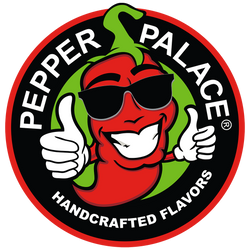Find a Store
The Dog Ate My Sriracha: Is Hot Sauce Safe for Dogs?
Put simply: no, hot sauce is not safe for dogs. While some professional dog trainers may green light strategically scattering a mild hot sauce around cords or furniture to discourage destructive chewing, you should never intentionally feed your dog spicy foods. The capsaicin molecules in chili peppers affect our canine friends as they do us. Capsaicin attaches to receptors in the mouth, esophagus, stomach, and intestines that tell the brain something is burning us (when in reality, nothing is burning; it just feels that way.) Dogs experience the painful sensation of hot sauce but lack the understanding that the harmless heat will soon pass, making the experience that much more miserable for your best friend, plus it can give Fido an upset stomach.
Are dogs sensitive to hot sauce?
Yes, dogs are sensitive to hot sauce and can definitely feel the burn. The common misconception that dogs don’t have taste buds or can’t taste well gets dangerous for them when it comes to hot sauce. Dogs do have taste buds—about 1,700 of them. Although that’s a lot less than humans have, dogs do have the ability to taste. More importantly, dogs’ sensitivity to hot sauce primarily occurs internally. So, even if a dog eats hot sauce and appears unbothered, the capsaicin, sugar, and other inappropriate ingredients will harm her on the way down. While she might not fully taste the intensity of the sauce the way we would, the effects of the spice are no less damaging. She’ll feel irritation, discomfort, a burning sensation, and probably experience gas, diarrhea, or vomiting.
Can hot, spicy food hurt a dog?
Yes, spicy food can hurt a dog. In addition to the perceived pain caused by capsaicin in chili peppers and the resulting intestinal discomfort, most hot sauce contains garlic and/or onions—both of which are toxic to dogs and can cause long-term health effects.
What happens if a dog licks hot sauce?
A simple lick of a chicken wing or slice of brisket, while unpleasant, typically won’t necessitate calling your vet (as long as it’s not The End or The End: Flatline, both of which come with prominent warnings to keep them away from your kids and pets.) Never intentionally feed a dog any hot sauce or spicy food. If they do get a hold of a leftover wing or grab a hot sauce-covered napkin from the trash, pay close attention since the effects of the spices might trigger pain, upset stomach, gas, and vomiting. If her behavior changes or if you notice any symptoms, contact your vet immediately.
My dog ate hot sauce, what do I do?
If your dog accidentally ate some hot sauce, contact your vet. She or he can advise you about the situation based on your dog’s size and the amount of hot sauce ingested. In case of an emergency, you can also call ASPCA’s Animal Poison Control Center: (888) 426-4435.
